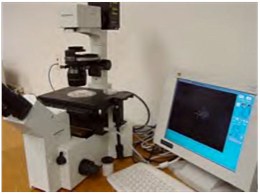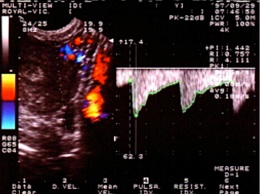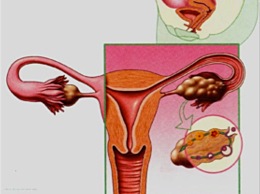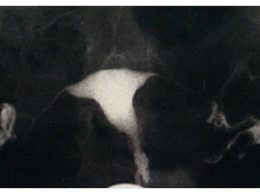Infertility Investigations
There are several reasons as to why you may have difficulties in conceiving a child.
Infertility Testing
Here we describe the infertility tests we may use to diagnose where the problem may be:
Semen analysis
 Thirty to forty percent of all cases of infertility are attributed to the male. In the last several years there have been significant advances in the way sperm is analyzed. We use an advanced computerized semen analyzer that enables us to assess not only the number of sperm in the ejaculate, but also the characteristics of the spermatozoa movements, which are critical for its ability to fertilize the egg. We can generally perform the semen analysis within about 40 minutes of obtaining the sperm sample.
Thirty to forty percent of all cases of infertility are attributed to the male. In the last several years there have been significant advances in the way sperm is analyzed. We use an advanced computerized semen analyzer that enables us to assess not only the number of sperm in the ejaculate, but also the characteristics of the spermatozoa movements, which are critical for its ability to fertilize the egg. We can generally perform the semen analysis within about 40 minutes of obtaining the sperm sample.
We perform semen analyses between 7:30 am and 9:30 am, Monday-Friday. Call us at least 2 days in advance to arrange an appointment for the analysis.
Ideally, a semen sample should be produced after three days of abstinence. The sample should be produced into a sterile container. Containers are available either from our centre or from your local pharmacy (ask for a sterile urine container). For couples where religious restrictions prohibit semen samples produced by masturbation, we can provide a special sperm collection condom.
Ideally, the analysis of a sample should be done within an hour of the sample being produced. If it takes longer than 1 hour from your home to our fertility centre, we advise you to produce the sample in a private area at the centre. If you produce the sample at your home we advise you to keep the sample close to your body while transporting it.
Hormonal testing of the female
In women who have cycles shorter than 24 days or longer than 35 days, ovulation may not be occurring. For this reason we may recommend comprehensive hormonal testing. This may include testing of hormones produced by your pituitary, ovary, thyroid and adrenal gland. These tests are typically done on specific days of the menstrual cycle. When your menstruation starts please call us to schedule the testing. In some cases we may also ask you to do the testing early in the morning and/or on an empty stomach.
If your menstruations occur more than 45 days apart, we may provoke menstruation with medication prior to assessing your hormonal profile.
Assessing ovarian reserve
In many cases we may wish to estimate the number of eggs remaining in your ovaries. One way of assessing ovarian reserve is to measure the level of estrogen and pituitary FSH (follicle stimulating hormone) on cycle day 2, 3 or 4 with a simple blood test. An even better way is by measuring a hormone called AMH (anti-mullerian hormone).
To complement the blood testing we often also order an antral follicle count, which is an ultrasound examination on day 2, 3 or 4 of the menstrual period to count how many follicles are present in the ovaries. More than 5-8 follicles per ovary generally indicate a favorable chance of pregnancy and more than 12 follicles per ovary is consistent with a polycystic ovary (PCO).
Ultrasound scan

We use the most sophisticated digital ultrasound equipment that allows detection of even minute abnormalities. We will be looking for benign uterine tumors (fibroids), abnormal growths of the endometrial lining (polyps), and the size and appearance of the ovaries. The test is generally done at the beginning of your menstrual cycle. Call us on the first day of your menstruation and we will perform the ultrasound within the first 4 days of your menstruation.
Investigations of the Fallopian tubes and uterine cavity

Both of these tests are generally performed between cycle days 5-10 of your menstrual cycle, i.e. after the bleeding has stopped but before you may have ovulated.
Both of these tests may be uncomfortable and carry a small risk of pelvic infection. For this reason we recommend that you take ibuprofen 1-2 hours prior to these procedures. We may also prescribe an antibiotic for you to take prior to either of these tests.
Sonohysterogram (SHG, saline infusion ultrasound)
A sonohysterogram involves placing a catheter inside the cervix and then slowly injecting saline under ultrasound guidance. A sonohysterogram allows us to evaluate the anatomy of the uterus and in particular, the endometrial cavity. During the sonohysterogram we may detect fibroids, endometrial polyps, congenital uterine malformations or intrauterine adhesions. With ultrasound we can also assess the ovaries on each side and verify if the fallopian tubes are open. A sonohysterogram is usually much less painful than a hysterosalpingogram (see next heading), and avoids the potential risk of an allergic reaction to iodine.
Hysterosalpingogram (X-Ray of Fallopian tubes, HSG)

Other Blood Tests (Prenatal Testing)
We routinely check the blood count and blood type for the female partner. We also check to verify that you have antibodies to Rubella (German measles). Women who do not have adequate antibody protection against Rubella will be advised to have a Rubella booster shot before attempting conception, and then to delay becoming pregnant for at least 4 weeks.
In addition to testing for antibodies to Rubella, we also routinely ask that both you and your partner have testing for Hepatitis B, Hepatitis C, Syphilis and HIV, unless you have already had this testing in the previous 12 months.
If you work with young children (school teacher, nanny, day-care assistant etc) we may recommend to be additionally checked for CMV (cytomegalovirus), as well as your immunity to chicken pox (varicella), and fifth disease (parvovirus B-19). If you have a cat you may also wish to be checked for antibodies to toxoplasmosis.
Psychologist
If you require donor gametes (sperm or eggs) you will be required to have an interview with our psychologist.
